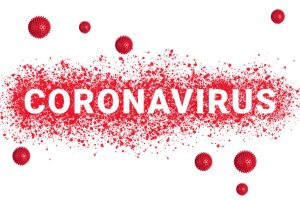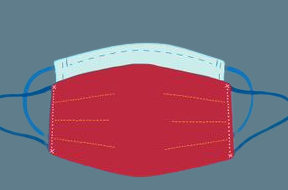Omicron Symptoms: What to Watch for and How They May Differ Based on Vaccine Status
 With omicron now the dominant strain in the U.S. and cases rapidly rising across Illinois and the country, experts say there are some symptoms that appear prominent with the new COVID variant and differ from what many came to expect with the delta variant.
With omicron now the dominant strain in the U.S. and cases rapidly rising across Illinois and the country, experts say there are some symptoms that appear prominent with the new COVID variant and differ from what many came to expect with the delta variant.
Dr. Katherine Poehling, an infectious disease specialist and member of the Advisory Committee on Immunization Practices, told NBC News last week that a cough, congestion, runny nose and fatigue appear to be prominent symptoms with the omicron variant. But unlike delta, many patients are not losing their taste or smell.
CDC data showed the most common symptoms so far are cough, fatigue, congestion and a runny nose, but some experts suggest the symptoms could depend on vaccination status and underlying health conditions.
In New York, where cases continue to surge, an ER doctor who became known on social media during the pandemic for his documentation of the battle against COVID, reported breakthrough cases he has seen in those with booster shots experienced “mild” symptoms.
In the unvaccinated, however, the symptoms were more severe.
“Almost every single patient that I’ve taken care of that needed to be admitted for Covid has been unvaccinated,” Spencer wrote. “Every one with profound shortness of breath. Every one whose oxygen dropped when they walked. Every one needing oxygen to breath regularly.”
According to early findings of a study by the U.K.’s Imperial College London, there is no evidence that the omicron variant is any less severe than the delta variant based on reported symptoms.
“The study finds no evidence of omicron having lower severity than delta, judged by either the proportion of people testing positive who report symptoms, or by the proportion of cases seeking hospital care after infection,” a research team led by professor Neil Ferguson said Friday in a blog post accompanying the study.
The data included 24 hospitalizations of patients suspected of having the omicron variant, with researchers saying “hospitalisation data remains very limited at this time.” The study is yet to be peer-reviewed.
Despite some differences reported between omicron and delta, Chicago experts say looking at the symptoms is not enough.
“The trick is you’re not going to be able to tell the difference between omicron, delta, lambda, plain COVID from the beginning,” Dr. Emily Landon, infectious disease specialist and chief hospital epidemiologist at University of Chicago Medicine, said. “Influenza or even common rhinovirus causes most of our common colds in the winter. You’re not going to know the difference between those if you just look at your symptoms. For many people, those symptoms are overlapping. And while there are some parts of the Venn diagram like taste, loss of taste and smell, or common COVID than these other things, there’s a lot of overlap. You’re just not going to know especially at the beginning of an illness, what kind of illness you have. You have to get tested.”
And getting tested won’t necessarily tell you if you have the omicron variant, Landon said.
“When you get a COVID test they’re just looking for whether or not you have COVID,” she said. “They’re not on which kind of in order to figure out the exact strain of COVID. You have to do this thing called sequencing, which takes a lot longer. It’s much more intensive. You certainly can’t get that back in 24 hours, and it’s only done by specialized labs.”
Excerpted from “Omicron Symptoms: What to Watch for and How They May Differ Based on Vaccine Status” from NBC Chicago. Read the full article online.
Source: NBC | Omicron Symptoms: What to Watch for and How They May Differ Based on Vaccine Status, https://www.nbcchicago.com/news/local/omicron-symptoms-what-to-watch-for-and-how-it-may-differ-based-on-vaccine-status/2716488 |
If you have concerns about your child or teen, CHC Care Coordinators can arrange a free 30-minute consultation so you can explore options with an expert. We invite you to call or email us at 650.688.3625 or careteam@chconline.org to set up an initial Parent Consultation appointment. CHC teletherapy services are available now.





